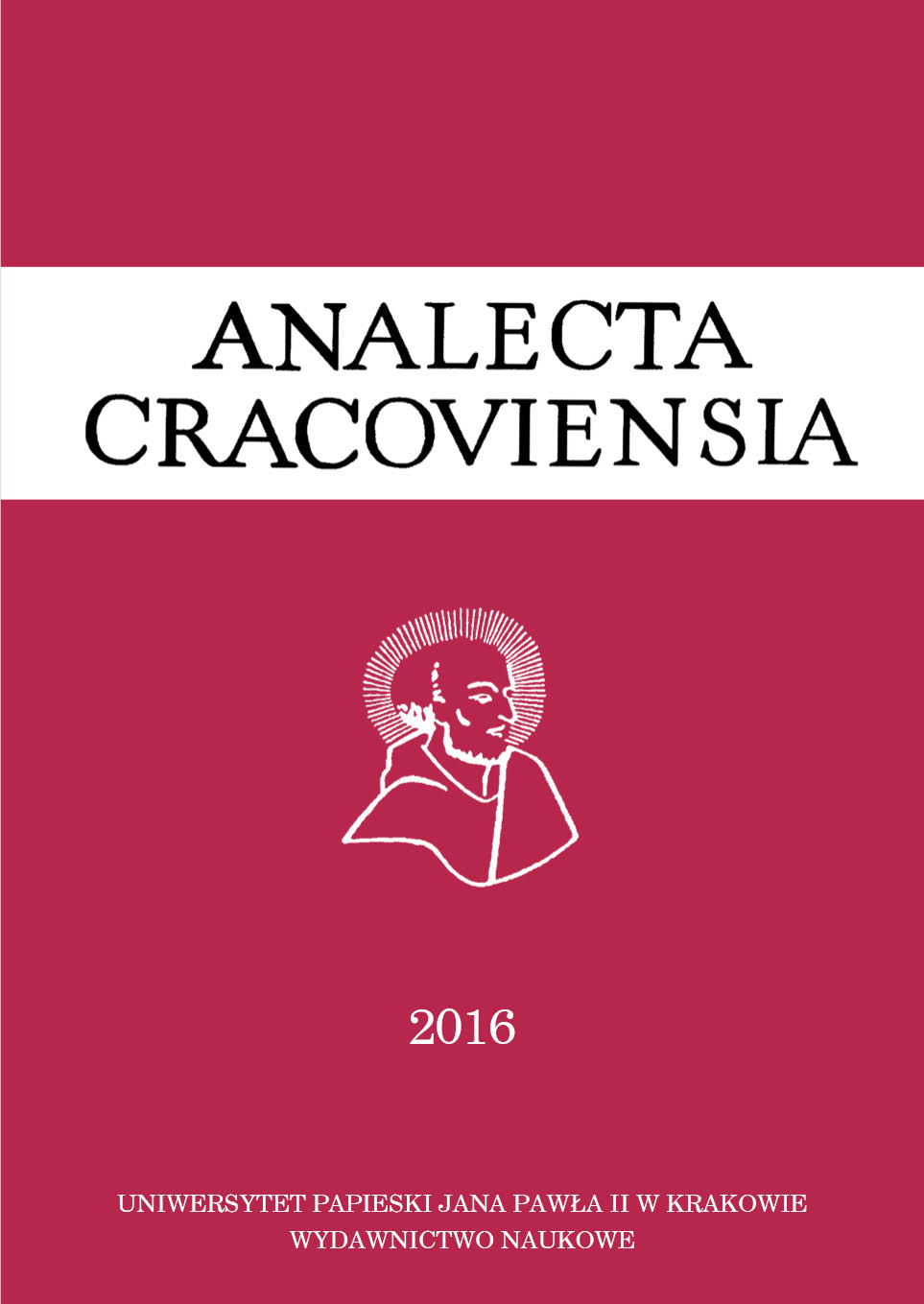Negation in theological language
DOI:
https://doi.org/10.15633/acr.2027Keywords:
negation, theology, logicAbstract
In the first part of the paper I present the brief overview of what negation is in philosophy and logic. In the second part I present examples of five kinds of negation that are used in the language of the catholic theology. This surprisingly results from the complex structure of the theology.References
Barska K., Ontologiczna problematyka negacji. Negatywne stany rzeczy w ujęciu W. Stróżewskiego i R. Ingardena, draft.
Béziau J.-Y., Are paraconsistent negations negations?, draft.
Buijs J. A., The negative theology of Maimonides and Aquinas, „Review of Metaphysics” 41 (1988), s. 723–738.
Curry H. B., Foundations of mathematical logic, New York 1963.
Duží M., Dowody ontologiczne św. Anzelma, [w:] Dowody ontologiczne, red. S. Wszołek, Kraków 2011, s. 35–69.
Horn L. R., A natural history of negation, Stanford 1989.
Hryniewicz W., „Hierarchia prawd” a ekumenizm, „Collectanea Theologica” 49 (1979), s. 5–21.
Humberstone L., The connectives, Cambridge 2011.
Kabziński J. K., Absurd określający negację, 2003, maszynopis.
Kowalski Z., Filozoficzne teorie negacji, [w:] Koncepcje negatywnych stanów rzeczy, red. Z. Kowalski, W. Krysztofiak, A. Biłat, Lublin 1998, s. 13–39.
Król Z., The implicit logic of Plato’s Parmenides, „Filozofia Nauki” 81 (2013) nr 1, s. 121–135.
Maciuszek J., Negacja w języku i komunikacji. O przetwarzaniu negacji w kontekście opisu cech ludzi, Kraków 2006.
Olszewski A., Pewna krytyka teologii naturalnej, „Analecta Cracoviensia” 46 (2014), s. 207–220.
Ott L., Fundamentals of Catholic dogma, trans. P. Lynch, North Carolina 1974.
Płonka T., Stopniowalność orzeczeń Magisterium Kościoła w nauczaniu Stolicy Apostolskiej podczas pontyfikatu Jana Pawła II, Warszawa 2011.
Rojek P., Logika teologii negatywnej, draft.
Stróżewski W., Z historii problematyki negacji, cz. 1: Ontologiczna problematyka negacji w „De quatuor oppositis”, „Studia Mediewistyczne” 8 (1967), s. 183–246.
Stróżewski W., Z historii problematyki negacji, cz. 2: Ontologiczna problematyka negacji u Jana Szkota Eriugeny i H. Bergsona, „Studia Mediewistyczne” 9 (1968), s. 117–213.
Szczurek J. D., Trójjedyny. Traktat o Bogu w Trójcy Świętej Jedynym, Kraków 2003.
Turoń A., O negacji, „Czasopismo Filozoficzne” 2007 nr 2, lipiec, s. 75–85.
Vakarelov D., Non-classical negation in the works of Helena Rasiowa and their impact on the theory of negation, „Studia Logica” 84 (2006), s. 105–127.
What is negation?, eds. D. Gabbay, H. Wahnsing, Kluwer 1999.
Wolak Z., Naukowa filozofia Koła Krakowskiego, „Zagadnienia Filozoficzne w Nauce” 36 (2005), s. 97–122.
Žarnić B., Is unsaying polite?, preprint.
Downloads
Published
Issue
Section
License
Authors who publish with this journal agree to the following terms:
- Authors retain the copyright and full publishing rights without restrictions, and grant the journal right of first publication with the work simultaneously licensed under a Creative Commons Attribution 4.0 International License that allows others to share the work with an acknowledgement of the work's authorship and initial publication in this journal.
- Authors are able to enter into separate, additional contractual arrangements for the non-exclusive distribution of the journal's published version of the work (e.g., post it to an institutional repository or publish it in a book), with an acknowledgement of its initial publication in this journal.
- Authors are permitted and encouraged to post their work online (e.g., in institutional repositories or on their website) prior to and during the submission process, as it can lead to productive exchanges, as well as earlier and greater citation of published work (See The Effect of Open Access).

